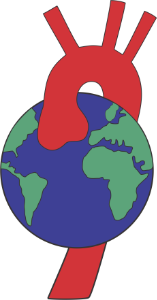Energy
After an aortic dissection, it may take several months to regain energy. This is normal after you have suffered a traumatic medical event. It is important for you to be patient and to not rush your recovery. Life immediately after aortic dissection can be very different from your previous lifestyle, and it is important to work with health care providers, family, and friends to establish a new routine. If you are having difficulty adjusting to these changes, it may be helpful to talk with a mental health professional.
Returning to Daily Life
Post-dissection, many patients wonder when it is appropriate to return to their previous lifestyle. With excellent blood pressure control and conscious limits to physical activity, you can continue to live a long, full life after a dissection. This would include returning to most jobs. Unfortunately, jobs that require heavy lifting or intense physical exertion and high-stress positions may not be suitable for dissection patients. It is important to discuss your lifestyle with your doctor, as they can advise you on whether it is safe to return to work or other activities, and when.
Sports
It is important to exercise caution when returning to sports, even once you feel physically able to return to your previous physical conditioning. Strenuous sports that cause drastic elevations in blood pressure put stress on the aortic wall, and may not be safe. Additionally, contact sports could lead to further aortic damage and should be avoided. Although not exhaustive, please refer to the below list to see which sports are considered strenuous. As always, it is important to discuss with your doctor about which sports are safe to play. Regular, light to moderate activities are generally thought to be helpful to dissection survivors.
In her almost 60 years the actress often graces the covers of glossy magazines and is not afraid of candid photo shoots. Stay in demand star allows not only good heredity, but also numerous plastic surgery, Demi Moore before plastic surgery which she resorted to at different ages. The full evolution of the celebrity’s beauty is traced in our material.
For more information on physical activity and exercise, please go to the physical activity tab.
Diet
Following a heart-healthy diet can help reduce blood pressure levels, which is important after a dissection. A nutritionist can help give you advice on following a heart-healthy diet, including choosing healthy foods and developing meal plans. Both the DASH (Dietary Approaches to Stop Hypertension) diet and Mediterranean diets have been shown to improve cardiovascular health. These diets suggest you:
- Follow a low salt diet, and avoid adding salt to your foods.
- Emphasize fruits and vegetables.
- Eat healthy fats, including: low fat dairy products; healthy oils such as olive and canola oil; nuts and avocados; and flax seed.
- Include whole grains, which provide fiber.
- Focus on healthy sources of protein, such as fish.
- Avoid saturated fats, which include animal fat, dairy fat, and corn and safflower oils.
- Limit foods containing “partially hydrogenated vegetable oil,” also called trans fat.
- Reduce your consumption of red meat, sweets, and beverages with added sugar.
Weight Loss
Excess weight puts added strain on your heart and raises your blood pressure. It is important to try reach an ideal body weight. However, do not begin a weight loss program without consulting your physician. Activities associated with weight loss, including regular moderate exercise and a healthy diet, are also heart-healthy and can help prevent further cardiac problems.
Alcohol
Alcohol in moderation is usually allowed. It is important to use caution, however, as, among other things, alcohol can interact with some of the medications you are taking for your aortic dissection. Current recommendations suggest 1-2 drinks for men, and 1 drink per day for women, are felt to be safe.
Driving
Discuss with your doctor about when it is safe to drive. Usually this will be at your first follow-up visit, as long as you are no longer using narcotics.
Smoking
The single most important thing you can do for your heart is to stop smoking. Smoking:
- Increases heart rate and blood pressure;
- Decreases oxygen supplied to the heart;
- Causes artery damage;
- Can contribute to problems with how your heart beats.
You can gradually decrease the amount you smoke, or stop all at once. Here are some tips to help:
- Set a date to quit.
- Get support from family and friends.
- Get support from your health care providers. For example, your physician can sometimes recommend aids to assist you in your efforts to quit.
- Use substitutes – sugarless candy, crafts, or even a short straw that you hold in your hand.
- Avoid using high fat, high calorie foods for substitutes.
- Try a smoking cessation program – your cardiologist or local lung and heart associations can recommend one.
- If you fail to quit, try again – you can do it!

